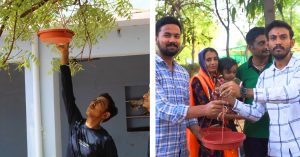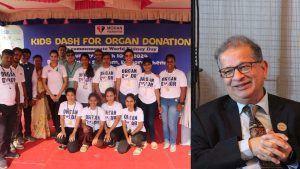#GiftaSchoolKit: This Republic Day, Change a Child’s Future By Donating Just Rs 500
With a donation of just Rs 500, you could help children of farmers continue and complete their education. Join The Better India and Shivprabha Charitable Trust's campaign #GiftASchoolKit to help children in Maharashtra's Yavatmal and Chandrapur districts with school kits and stationery. Here's more!
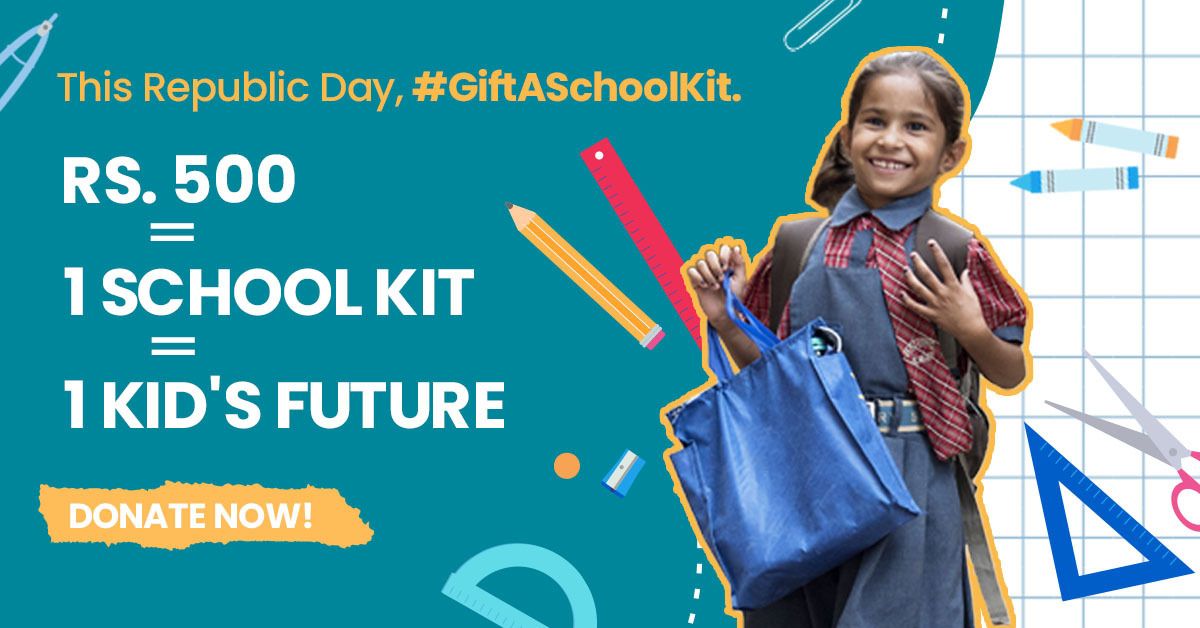
Life isn’t easy for Vikas (name changed) a Class 2 student of the Zilla Parishad school in Maharashtra’s Aaregaon village. His father, a farm labourer, earns an average of Rs 150 a day, a meagre amount that is channelled towards the upkeep of the home, grocery needs, rations, and medical expenses. Academic expenses do not factor into the list.
Needless to say, at the end of the month, there is hardly any money left for the ‘savings jar’.
The overwhelming burden of finances often used to cause Vikas to skip school. Because, even while admission to public schools is free in India, books, stationery items and school bags aren’t. As the family navigated through the financial crisis, these expenses would add to their woes.
The easiest option was to drop out of school. Vikas’s story is not an exception. It is the ground reality of thousands of children in remote Indian villages whose parents work as farmers and labourers, earning just enough to live hand to mouth.
“Bear in mind that even the ‘Rs 150 a day’ is the promised amount only as long as the contract goes on, which is usually six months. The remainder of the year these farm labourers do not have work since there are no rains,” Amol Sainwar, founder and president of Shivprabha Charitable Trust tells The Better India.
The situation is grim for marginal farmers too. Sainwar explains, “A farmer with three acres of land earns Rs 1,20,000 a year. But the profit is zero.” These financial woes snowball into problems that affect each member of the household, leading to a decline in the standard of living.
But, since 2007, Sainwar and his team have been working with underprivileged communities in nine states and 43 districts of India to bring equity in education, whilst also championing change in other areas extending but not limited to health services, electrification, rural development and entrepreneurship programs.
The vision is to bring like minded people together so true change can be achieved.
And now you can be a part of this revolution.
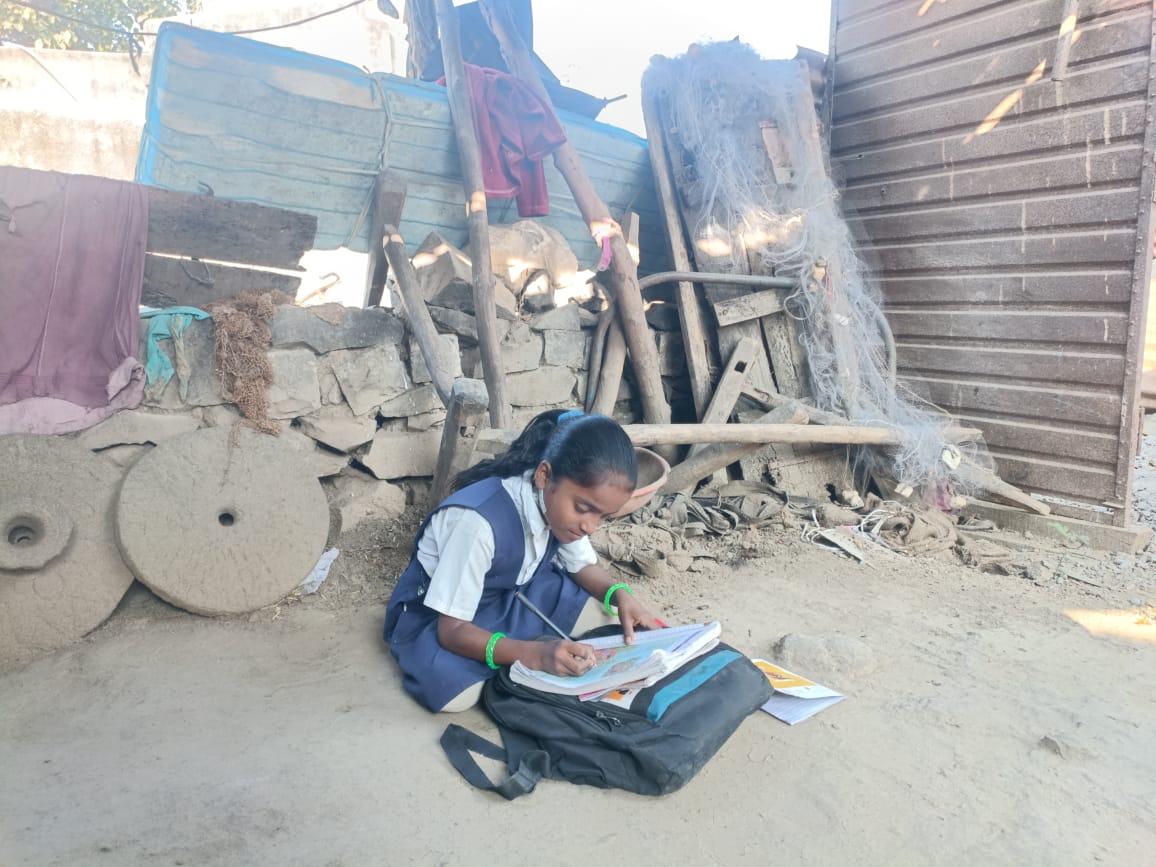
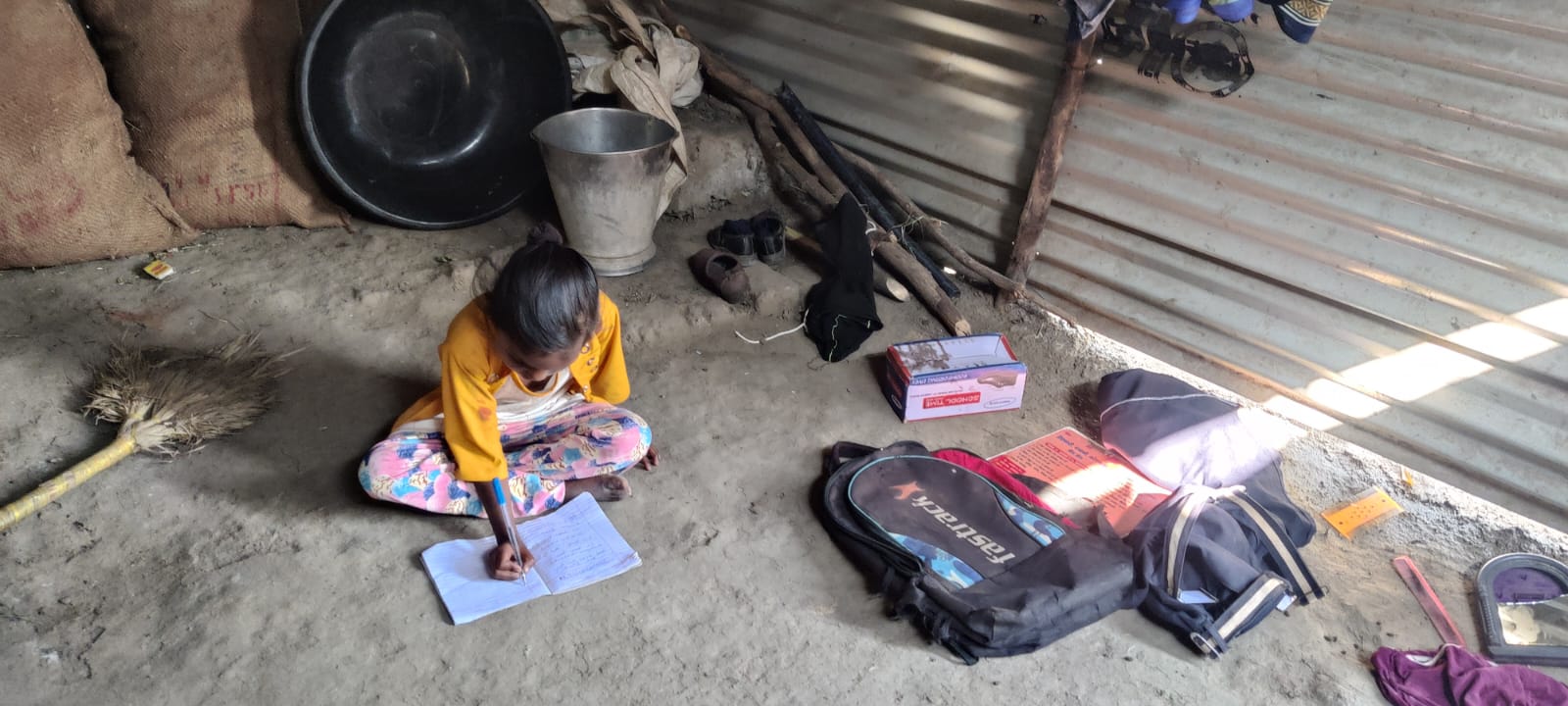
Education in rural India – a distant dream
Anyone who asks Vikas about his day will be treated to a tale of how he loves going to school.
As he packs his notebooks and art supplies into his brand-new schoolbag, there is a spring in his step and a smile on his face. Vikas and his school kit are now inseparable.
Shivprabha is at the helm of this novel idea to encourage children to continue their education. “Imagine if the daily earnings of the family are Rs 150,” Sainwar urges. “The cost of notebooks, basic stationery, slate and school bags averages Rs 500. How will the family manage to pay for these expenses for the child? In the case of families that have many children, this is a tough feat.”
In 2014, he concluded that providing kids free admission and mid-day meals is one of many solutions to draw them to schools. They must also be assisted with the material necessary to continue their education. Thus, the idea of the school kit was born.
Recalling its inception, Sainwar traces his steps back to an article he read in 2014 about a Class 10 student committing suicide. “The article stated that the child’s father could not afford a bus pass that would allow him to travel from the village to the taluka. This made the child take the drastic step.” This spotlighted the hardships that children of daily wage workers face, and Sainwar and his team decided to investigate the issue.
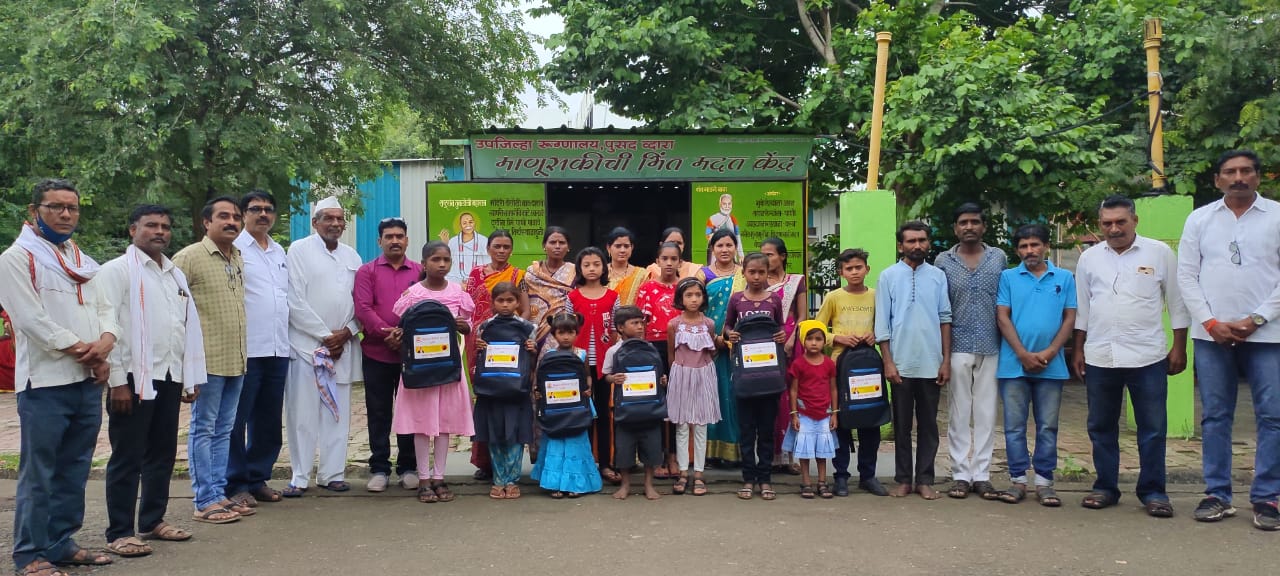
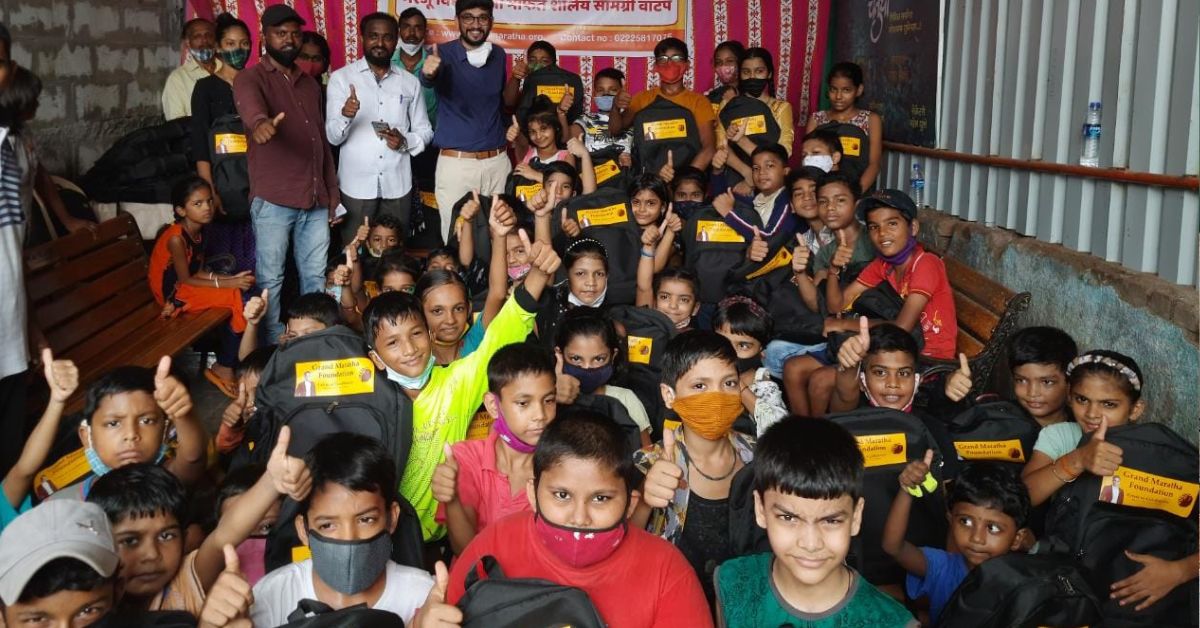
“We came to understand how these labourers and farmers earned so little that they couldn’t even afford to buy a small notebook or even pens for their children. While we consider these small expenses, in their eyes they are big,” he adds.
But the problem had bigger repercussions on the child, they discovered. “When the child would go to school without a notebook or pen, the teacher would reprimand them. This would affect the child’s morale and eventually, the child would stop going to school.”
Finding these loopholes in the system gave Sainwar and his team a sense of agency to tackle the problem by stepping in and filling the gaps. Sainwar shares that one of Shivprabha’s trustees Parsharam Narwade, also the headmaster of one of the beneficiary schools, was instrumental in guiding the team with the essentials that the school kit must include.
Each kit, he says, comprises a school bag, notebooks, a drawing book, wax crayons, a slate, a pencil box and a pouch that comprises stationery. Children in Classes 5 to 7 are also provided with a geometry box, while children in classes 8 to 10 are provided with a graph book in addition to the above.
For some children attending English medium schools, where it is insisted that students wear shoes and socks, these are also provided for.
Narwade is a picture of enthusiasm as he speaks of how these kits have transformed the children’s lives. “Seeing them carry school bags in contrast to plastic bags is amazing. All these children who we help come from families of labourers. Their parents are struggling to make ends meet. We aren’t only assisting them with these kits, but also provide scholarships to the meritorious students so they can continue their education and help their families out with the money.”
Take Shivam Vitthal Jevalewaad’s story for instance. The Class 2 student of the Zilla Parishad school in Maharashtra’s Yavatmal was previously living with his parents. They are a part of a tribal community in a remote village in the Painganga Sanctuary. Vitthal observed the hardships of life at a young age as he watched his parents cut sugarcane in the fields, often witnessing losses due to a bad crop.
While Vitthal’s parents sent him to live with his uncle in Yavatmal, Vitthal would often skip school as he lacked the motivation and supplies. Narwade adds, “Shivprabha provided all materials that Vitthal needed and now he has become quite good in his studies.”
Like Shivam, over 9,000 children have been impacted through these school kits. And the numbers can steadily increase with your help. The kits will be distributed across 20 Zilla Parishad schools in the villages of Aaregaon, Yeranda, Dhampeth, Ganpur, Kopara and others in Maharashtra’s Yavatmal and Chandrapur districts.
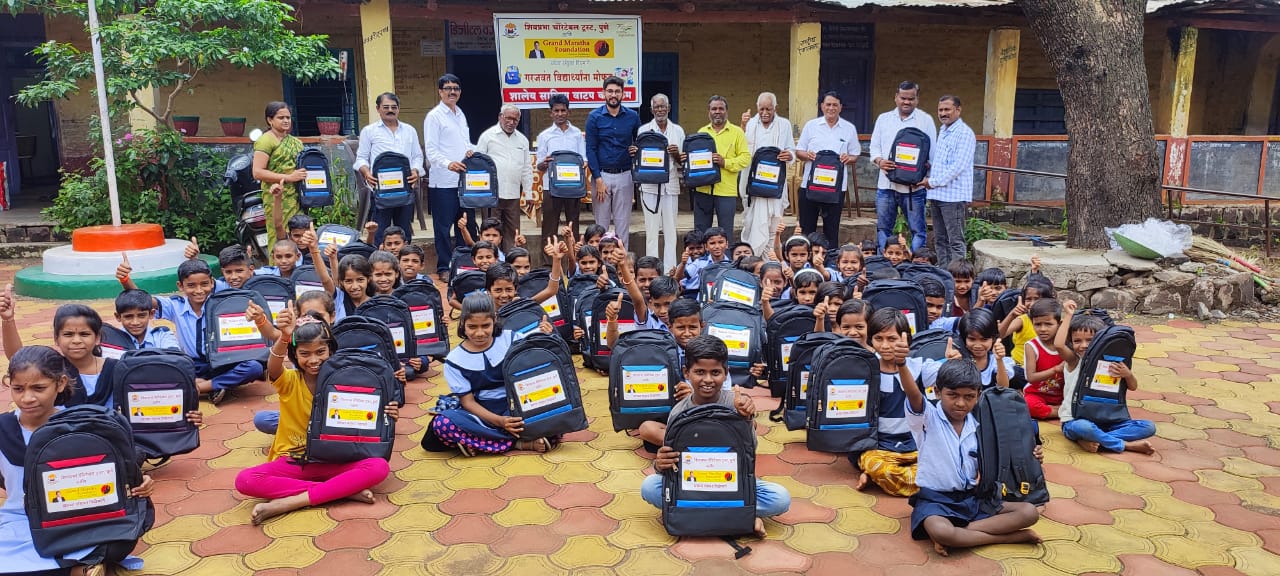
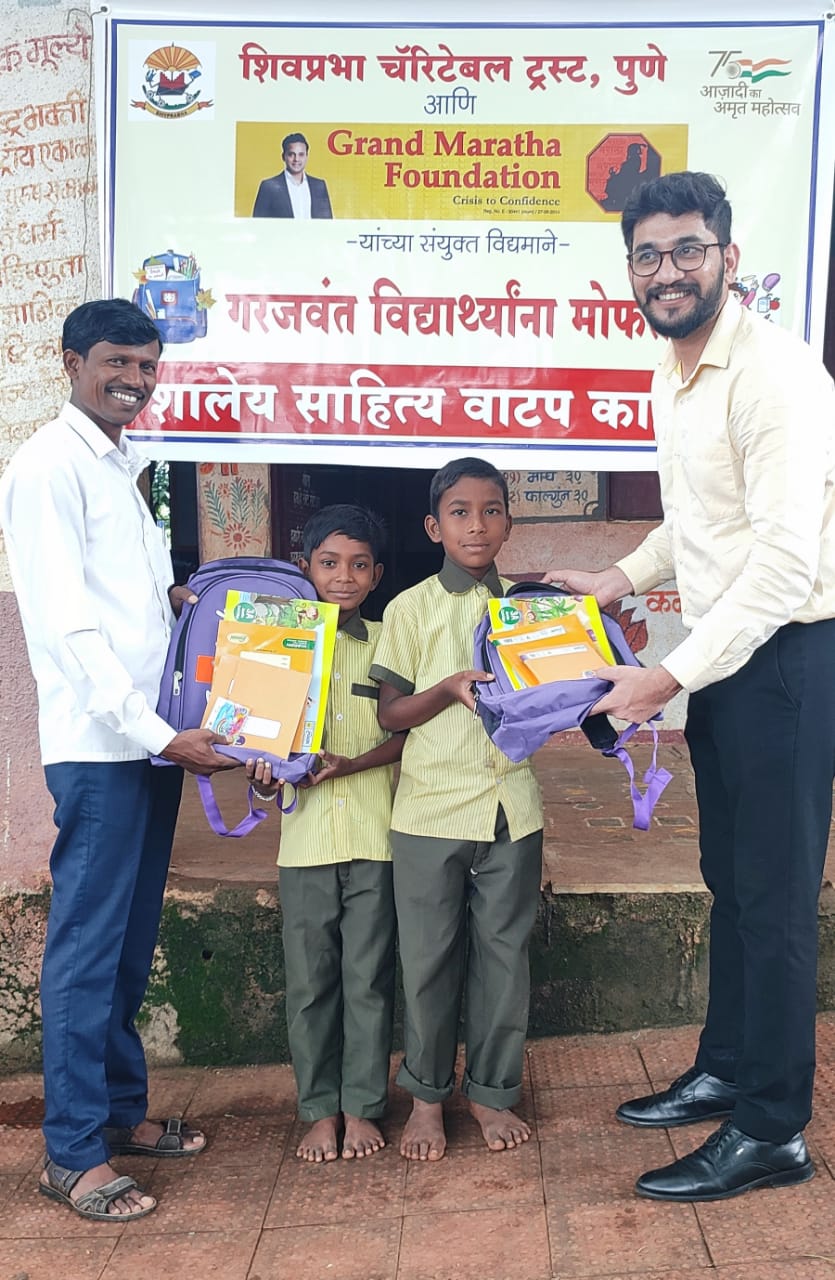
Inspired by experience
Sainwar prides himself on being at the helm of the change that Shivprabha is bringing about. Thrust into the working world at a young age after he lost his father when he was just eight years old, Sainwar says he learnt to push the boundaries early on in life.
“I used to sell newspapers when I was younger and then began giving tuitions and working at a tyre repair company when I was older. The money I earned helped me continue my education till Class 12. But then I hit a roadblock.”
Exorbitant fees for professional courses made Sainwar reconsider his options. The few thousands he had managed to save up through the years were no match for the engineering fees. But help comes to those who persist, he shares. His professors stepped in and funded his engineering course, where Sainwar shone and topped his batch in the final year.
Thereafter, he began preparing in earnest for the GATE exam (an entrance examination for postgraduate programs in engineering). Recalling his own struggles that he’d seen in his academic journey, Sainwar decided to donate the books he had purchased to his college library once the exam was over.
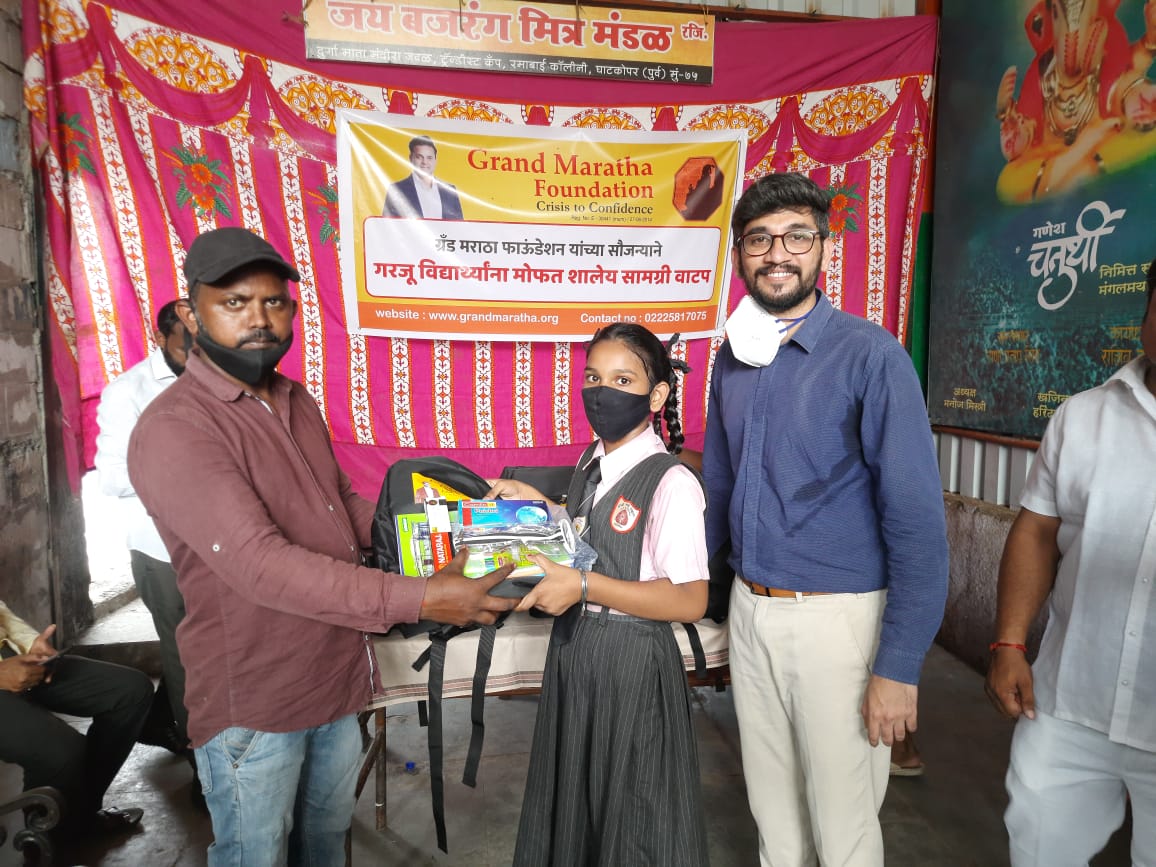
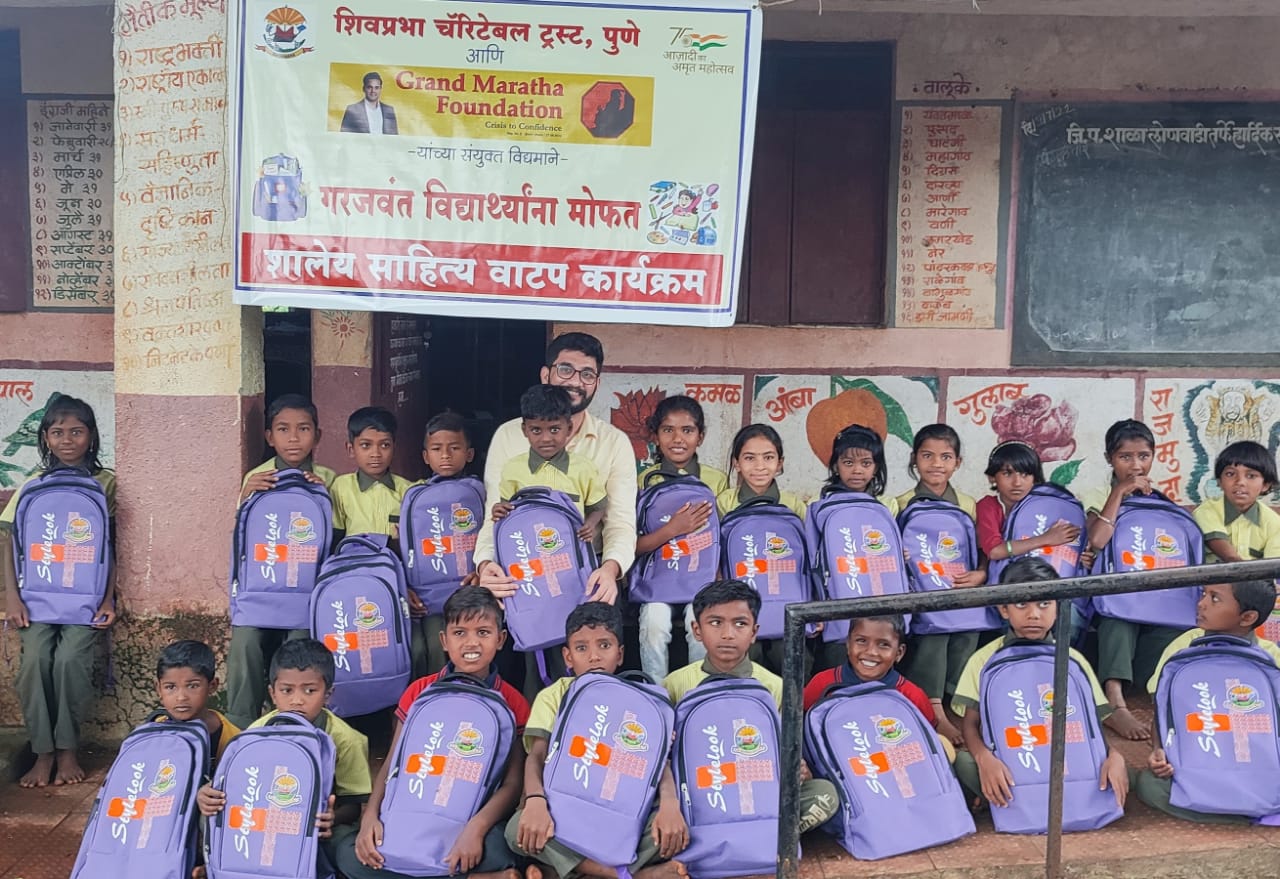
“I told them to give the books to a student who wanted to attempt the GATE exam but did not have the money to buy the books. The student could return the books once they were finished and these could help another student.”
Elaborating on this cycle of good, Sainwar says, “I wanted to support people in education because society had supported me the same way.” With this belief, in 2007, Sainwar along with his friends came together and started an organisation HOPE (Help Our People for Education) that would help anyone who wanted to study but whose financial condition did not permit it.
In 2012, the organisation diversified into myriad activities and began work in several areas of rural development. In 2014, Shivprabha Charitable Trust was launched. Sainwar’s journey of creating a space where ideas become reality to better the lives of people in rural areas of India has been telling.
Changemaking does not need to be an individual journey. You can be a part of it too by making your contribution and giving a child, both hope and supplies for schools.
Edited by Padmashree Pande
If you found our stories insightful, informative, or even just enjoyable, we invite you to consider making a voluntary payment to support the work we do at The Better India. Your contribution helps us continue producing quality content that educates, inspires, and drives positive change.
Choose one of the payment options below for your contribution-
By paying for the stories you value, you directly contribute to sustaining our efforts focused on making a difference in the world. Together, let's ensure that impactful stories continue to be told and shared, enriching lives and communities alike.
Thank you for your support. Here are some frequently asked questions you might find helpful to know why you are contributing?






